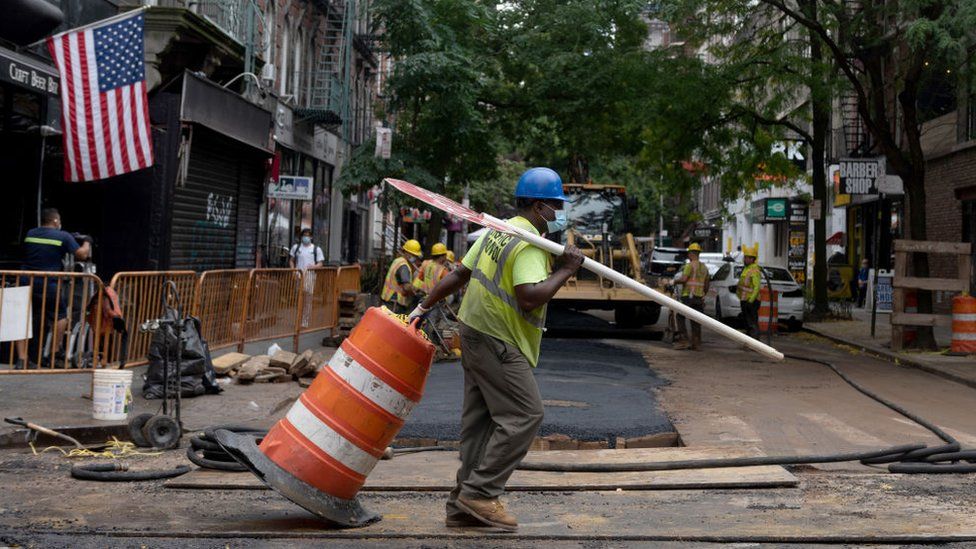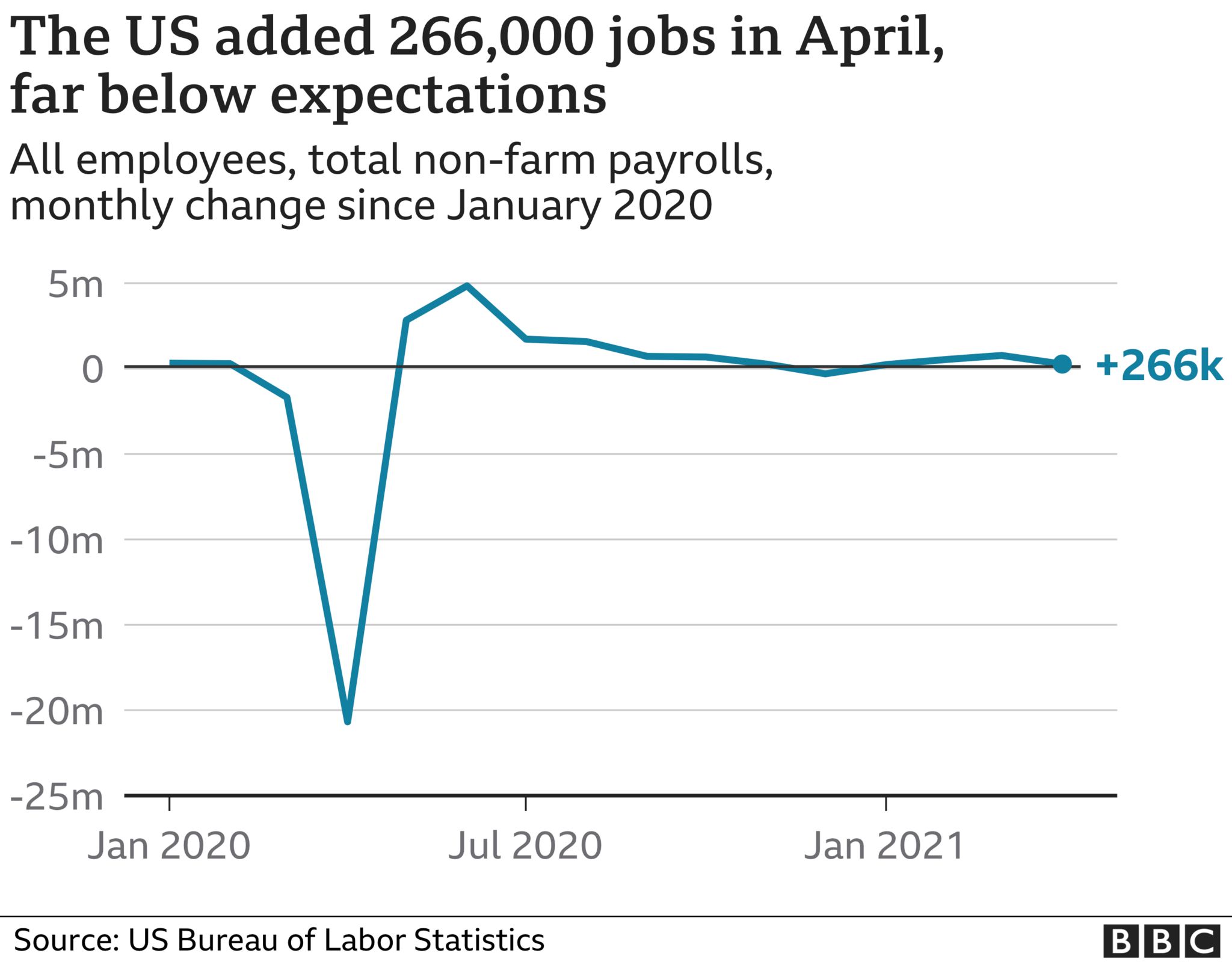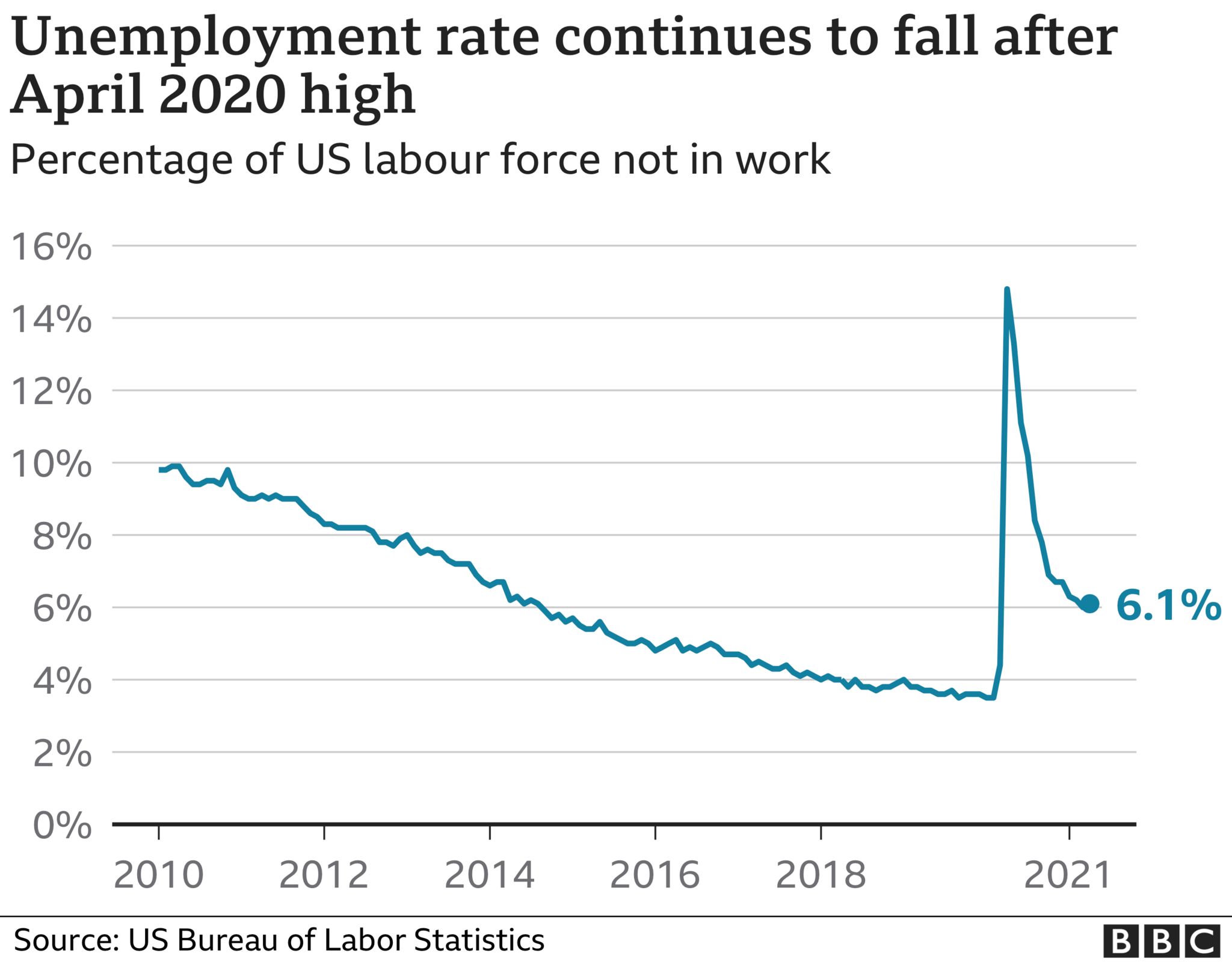
US employers hired fewer workers than expected last month despite a huge stimulus package that saw the government send $1,400 (£1,000) cheques to most Americans.
Just 266,000 jobs were added in April and the unemployment rate edged up to 6.1%, according to the Bureau of Labor Statistics.
It said a hiring spree among leisure and hospitality businesses was offset by declining courier numbers.
In all, 9.8 million remain unemployed.
In February 2020, before lockdowns forced millions into unemployment, 5.7 million people were out of work.
In March, the Biden administration pushed through the $1.9tn stimulus package.
The latest jobs figures were well below the expectations of economists, who had predicted that the gain would be anywhere from 900,000 to 2 million jobs.
That would have been well ahead of the 770,000 jobs that were added in March, which was considered a sign that America's economic recovery was gaining pace.
In a speech on Friday to "put today's jobs report in perspective," President Joe Biden said the new job numbers "show we're on the right track".
He defended his bailout as a "year-long effort to rescue our country" and dismissed suggestions "we should be disappointed".
His speech came after his Democratic party ally, Speaker of the House Nancy Pelosi, issued a statement calling the April report "disappointing" and for Congress to approve more funds for infrastructure spending.

"Today's disappointing jobs numbers will heighten investor caution and raise concerns around the resilience of the US labour market - and to what extent the pace of the Covid-19 vaccination programme will boost economic activity and employment," said Richard Flynn, UK managing director at Charles Schwab.
"However, across economic metrics - from GDP to retail sales to job growth - boom conditions are evident," he said. "We are yet to see the full effect of this since the unemployment rate is one of the most lagging of economic indicators."
Despite the weaker-than-expected data, the numbers are a marked improvement compared to the same period a year ago, when lockdowns put more than 20 million people out of work.
"While the labour market continues to recover, today's report suggests that the jobs recovery may not be quite as rapid as many had expected," said Mike Bell, global market strategist at JP Morgan Asset Management.
"There was continued strong jobs growth in the leisure and hospitality sector but these gains were partially offset by declines in business services and transportation and warehousing, manufacturing and retail also saw small declines in employment."


Disappointing figures show comeback is far from complete
By Samira Hussain, BBC News, New York
In a word: "Wow". The massive economic recovery that many were expecting in America did not materialise in this latest jobs report.
The US economy added only 266,000 jobs in April, a far cry from estimates that ranged anywhere from 900,000 jobs to possibly even 2 million.
This discouraging employment report comes as coronavirus infection rates are declining and businesses are reopening.
Unsurprisingly, many of the gains came in the leisure and hospitality sectors as bars and restaurants reopened. But it is other sectors such as retail where hiring is stagnant.
Some economists had warned of a fitful economic recovery.
One disappointing jobs report does not mean the country's economy is in trouble.
But this is evidence it may take a lot longer for the US to make its economic comeback.

The slowdown in hiring was "very probably" not a result of weaker demand for workers, said Ian Shepherdson, chief economist at Pantheon Macroeconomics.
"We know from endless surveys that labour demand is very strong, but we also know from both surveys and media-reported anecdotes that firms are finding it hard to recruit people," he said.
He said that the data "made it much easier" to argue that putting up unemployment benefits by $300 a week in the March relief bill had "crimped labour supply".
Some states agree with that argument. Both South Carolina and Montana have said they will stop unemployment benefits offered by the federal government from being paid to their citizens.
They are worried that the extra money is more likely to persuade people to stay at home, keeping them out of the workforce. Instead, Montana is offering $1,200 to those who return to work.
https://news.google.com/__i/rss/rd/articles/CBMiLGh0dHBzOi8vd3d3LmJiYy5jby51ay9uZXdzL2J1c2luZXNzLTU3MDI0NTU10gEwaHR0cHM6Ly93d3cuYmJjLmNvLnVrL25ld3MvYnVzaW5lc3MtNTcwMjQ1NTUuYW1w?oc=5
2021-05-07 16:34:10Z
52781572988629
Tidak ada komentar:
Posting Komentar